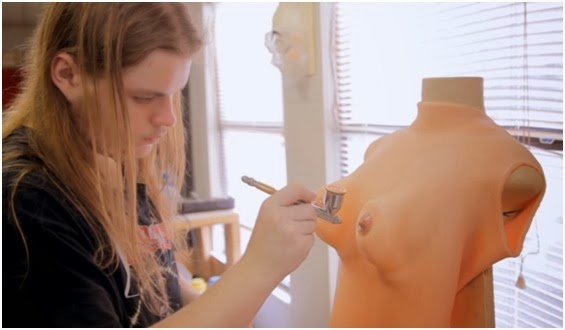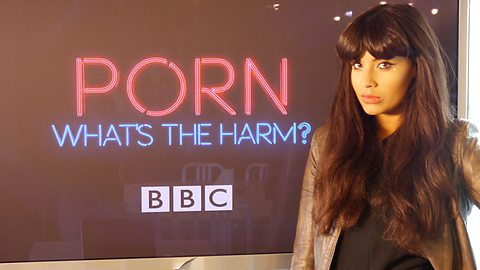After watching the recent Channel 4 show
Secrets of the Living Dolls I had many questions fizzing around in my brain: What's the appeal of this? How popular is it? Why have I never heard of it before? Is it sexual? What's the difference between this and transvestism? But the main question was, as always;
How does this affect women and their place in society?
That's right. As you can tell from the name of my blog, I'm a feminist. This is not just a set of beliefs about equality but also, a world view. Whatever I am doing, whether that's consuming any kind of art or culture, or going about my day-to-day life, I am always considering the effect that what people say, do and produce have on women. Why? Because I believe that all of these things affect how women are perceived, and therefore how they are treated; in public spaces as well as their private lives.
So, back to the
Secrets of the Living Dolls. Another interest of mine, as well as feminism, are the various quirks of human life. I love finding out about the plethora of human behaviour around the world and delving into why people do what they do. It is definitely what makes life interesting and Channel 4 are well-known for producing shows that explore many different types of human interests and behaviour in documentary form. I find them fascinating because I love learning (being a teacher by trade) and I am a humanist; to me there's nothing more interesting than the individual, unusual, weird and wonderful.
Men that enjoy dressing as 'living dolls', a hobby also known as female masking, largely keep it a secret from the outside world, even their own families. This is a past-time that is not necessarily out in the open or widely accepted in society. The focus of this documentary was on men from the UK and the US, the latter being where the company that makes the female body suits (known as Fem Skins) is based, which has clients worldwide. The reason that they feel they must hide their alternative life-style, shock-horror, is because it does not conform to the norm of how men (or indeed people) should dress or behave. It is against the status quo and can, as we see in the documentary, attract a very hostile response from members of the public.
 An employee of Fem Skins working on making the nipples more realistic for the German market.
An employee of Fem Skins working on making the nipples more realistic for the German market.
My issue with female masking is most definitely not one involving a disagreement with them wearing Fem Skins or dressing in 'women's clothes'. In fact the reason that I put that phrase in inverted commas is because I don't believe there should be such a thing as 'men's clothes' or 'women's clothes' just clothes, that anyone can wear if that's what makes them comfortable. The issues that occurred to me whilst watching the documentary were what female masking represents, and how it reflects the place of women in society.
Firstly, there is the issue that the majority of masks and body suits created (completely custom-made based on clients' requirements) represent a very particular image of 'woman'. They all have curvy but slim bodies with accentuated hips, bottoms and breasts, and they all have angular model-esque faces with large eyes and
a lot of make-up, which of course, is permanently on their faces due to them being masks. In no way do the range of masks depicted in the documentary represent a range of women that can be seen in the real world. Many of them do refer to their alter-egos as 'dolls', but even dolls are representations of the female image, and they are made by design which is inspired by real life, like the Fem Skins are. Mostly, the men seemed to have designed a suit that represented their 'ideal' woman; whether that's because they wanted to
be that woman, or because they wanted to be
with that woman, it still represents an ideal of what the opposite sex should look like. The dolls created in no way represented the variety that exists in real life, but a very narrow representation with qualities that identify women as objects of the male gaze, and make anyone that does not possess these aesthetic qualities feel like shit.
Now onto the men themselves. One comment made by 70 year old Robert from the US, when discussing women he has recently dated was particularly disturbing "...some of them are in good shape for 55-65 (years old), but they don't look anything like this. And it's very difficult to date when you have
this to come home to". This is clearly a more extreme reaction to the fact that his expectations of women are extremely unrealistic; he wants, and thinks that he should be spending romantic time with young slim women that conform to the stereotype of 'beautiful' that is constantly shoved down our throats. This may be one end of the scale when it comes to reactions to not being able to find a woman you fancy, but it highlights the fact that many men see women in terms of their looks rather than their personality. Then in turn, this is all part of the pressure that women feel to look a certain way in order to be deemed desirable.
Robert enjoying some alone time with Sherry in his garden.
On the other hand, 28 year old Neil from the UK does not relate female masking to his love life; he has a girlfriend with whom has just moved in, and they seemed to be as connected and happy as a couple could be. She in no way conforms to the ideals of female beauty present in the dolls, and she is whom he has chosen to be with. Good stuff. Although Neil did say something that highlights another of society's issues with women. When asked what he gets from his hobby he replies "...it's kind of like an extension of a persona within me that wants to go out and have fun". This implies that his down-time leads to him wanting to adopt a female persona; that somehow being a man is too serious. Again, this reinforces women's place in society as creatures that are here to be attractive and think about kittens and babies rather than deal with serious 'man issues'. Women can have more fun because they don't need to, or aren't capable of, thinking about anything too serious. Now I'm not one to deny anyone their fun, and perhaps Neil just sees it as escapism, but the implications are there.

Neil enjoying the escapism of female masking.
Back to America; John a well-established female masker who has six daughters, said "...I loved women, I used to collect pictures of swimsuit models" with regards to his days as a lonely teenage virgin. Was that supposed to be a compliment to woman-kind? This, again, reinforces the fact that if you love women it's because you love how they look, because that's all there is to the female sex! It seems so far that the Americans of this documentary are trying to (to paraphrase John) emulate the female that that they could never have, in order to fulfil their sexual desires. The need to spend time with their ideal female is so strong that they have to become that female to satisfy the craving. When put like that this is a very disturbing outcome to the objectification of women. The feeling of entitlement to a beautiful woman is so strong they pay someone make them out of rubber,
and wear them.
I'm sure this is great fun if they're not attached.
Another thing that the female maskers in the programme, from America especially, have got
very wrong about being a female in public spaces, is the effect of the male gaze. Vanessa, 51 year-old father of six, said "when I'm in my male mode... I go out in public and I just blend in...by putting on the mask it allows me to have that little bit of fame for a little while and...get all that attention". In dealing with this quotation we have to put aside the fact that people may also be staring because they can see a six foot rubber doll walking around the streets (not something you see every day), and consider that the reason people now look at them is because they are 'female'. That's certainly how these men feel they get attention; as we all know, women are subject to the male gaze when moving in public spaces far more often than vice versa. To further justify that point, when Robert goes out in public dressed as Sherry for the first time, he was verbally harassed as soon as he left his car. A man in the car park shouted "Show me what you got" whilst stopping and staring; despite
clearly not being a biologically valid woman, it was still acceptable to shout demeaning and derogatory comments at this person in public, due to his appearance as female.
Robert (as Sherry) on his first trip out in public.
Therefore, if we deem the female aspect of their costumes to be the reason for more attention, I can't help but feel like they are slightly taking the piss. They can choose to wear those suits and those 'revealing' outfits for attention when they want to have fun and 'be famous' for a while. What are us real-life women supposed to do? We have no rubber mask we can remove to blend in better. Even covering up our body, wearing no make-up and not washing your hair for three weeks is no guarantee that you won't be subject to leers and sneers from men on the street. As a woman, if you don't conform to the stereotype of attractiveness you are shunned and made to feel worthless, and if you do conform to it (whether by natural or cosmetic means) you are subject to constant harassment.
So to conclude, I guess all I would say to female maskers, if I ever meet them, is - have fun with the imitations of woman that you admire so much, but please remember; we suffer this
every day, and we can
never take off the mask.



















